With another cold morning in the mountains of Lebanon ahead of me, I began my day in the city of Hrajel, roughly one hour northeast of Beirut. I was there to visit some bakeries, check out some more Lebanese food, and see the ancient Qalaat Farqa ruins, so let’s explore Hrajel, Lebanon!
My guide Armando and I would basically be going on a breakfast food tour! The entire area was a beautiful winter wonderland. There was snow everywhere!
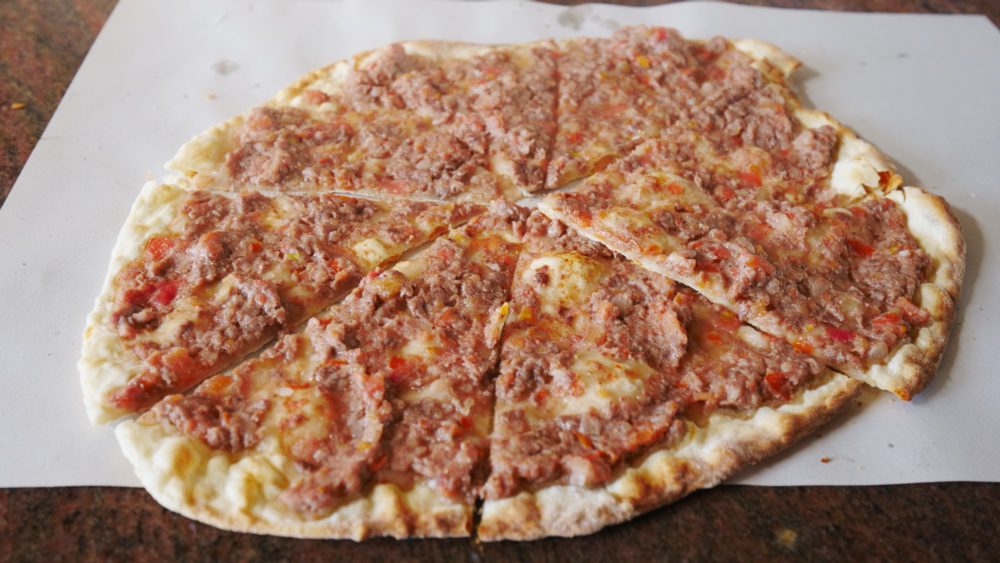
Our first stop was a small bakery where we met a man spreading two different cheeses on some dough before baking it in an oven for 3 minutes. We got one with cheese and another with lamb (lahm bi ajeen).
The cheese manakish had a nice crust that wasn’t too soft or too crispy, with nice, gooey cheese. It was really good and fresh!
Then, he made another with a mix of za’atar and sunflower oil on top. As we watched, the owner brought a huge bowl of ground lamb! He added salt and spices to the lamb. The za’atar flatbread smelled incredible!
Then, Armando squeezed some lemon juice on the the lahm bi ajeen. I loved the zestiness of the lemon juice with the meat. Between the lamb, crispy bread, and lemon, it was an amazing breakfast that cost us less than $4 USD in total!
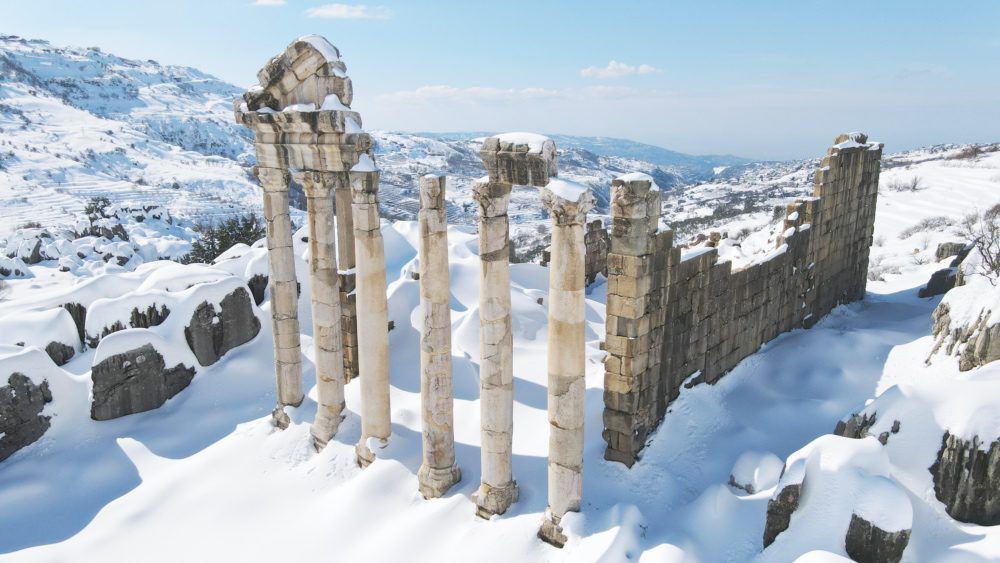
Next, we hopped in the car and drove through a mountain resort area down an icy road to Qalaat Faqra, an archaeological site consisting of Roman ruins in eastern Lebanon from 44 AD. It was built by Emperor Claudius!
Unfortunately, because of the deep snow, we couldn’t go inside the site and see the ruins. I was a little disappointed, as it’s a beautiful UNESCO World Heritage Site.
The winter of 2022 was one of the coldest and snowiest in Lebanon’s history. The amount of snow they’d gotten was highly unusual.
Seeing the Qalaat Faqra ruins even from a distance was a highlight of my time in Lebanon, though. However, I highly recommend visiting the country during the warmer months if you want a better chance at visiting the outdoor attractions.
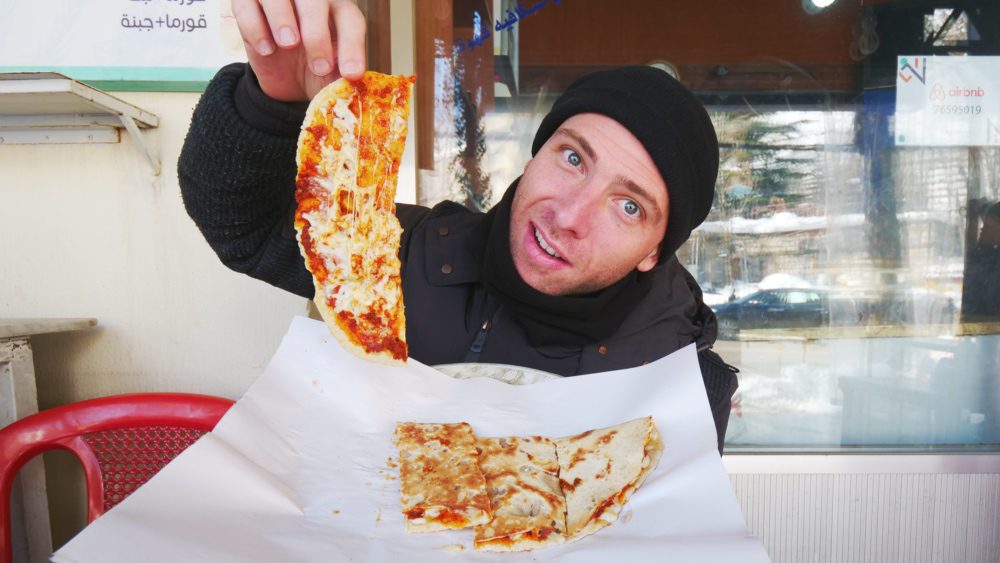
From there, we drove to Saj Mema, where they were cooking the dough on a huge, round flat top grill. As it grilled, the cook added chili paste (hurin), sesame seeds, and four cheeses (hurin). In Arabic, the mix of cheese and chilies is known as jubna hurin.
They cut it into gooey, scorching-hot slices. It was crispy and wasn’t too spicy. I loved the addition of the sesame seeds. It was simple but delicious, and perfect for such a cold day!
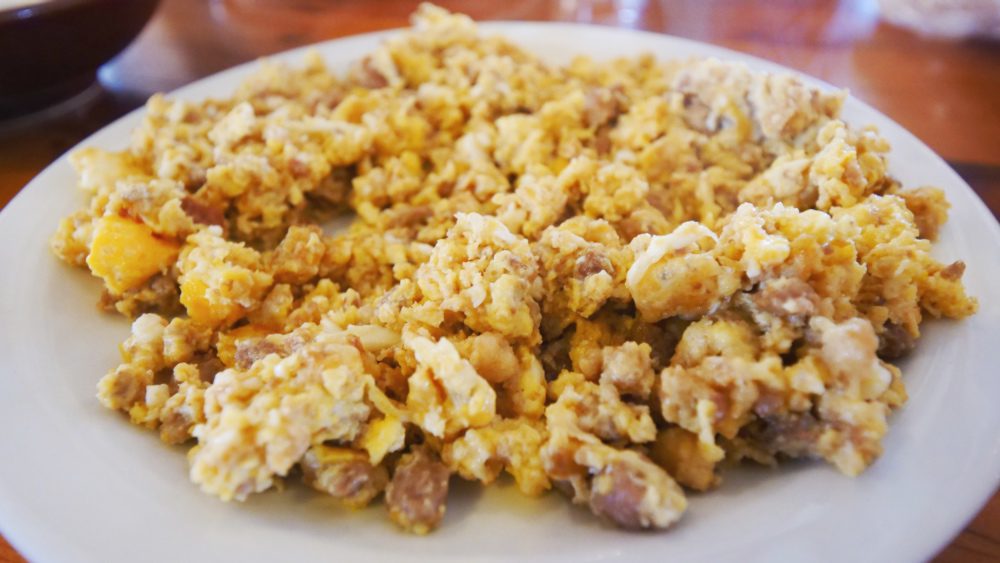
After finishing with some Lebanese espressos, we drove to a restaurant called Jalset al Erzal to have a dish called kawarma or qawarma (chopped lamb, usually served with hummus) and labne (a type of yogurt).
They also make a special local cheese and kebabs. In the kitchen, I could see a huge, boiling pot of minced lamb, as well as them making eggs with lamb. They were also making minced lamb kebabs, chicken kebabs, and baked potatoes.
At our table, we started with a smooth and cloudy arak. Then, we had saj (a large, thin flatbread), bayad ma’a qawarma (kawarma and eggs), labne, and jibneh baladi (local white cheese).
The saj with labne was amazing. I loved how thick and creamy the labne was. It’s locally made, so it’s super fresh. The bayad ma’a qawarma was also great. The saj reminded me of the lavash I ate in Armenia!
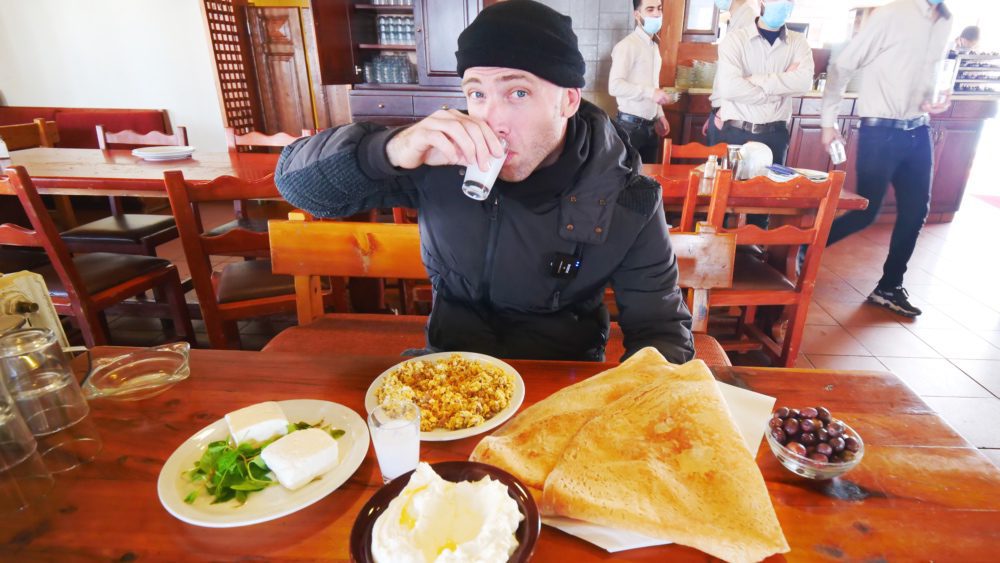
The three together made for a cold, warm, creamy, and hearty mix! Then, I tried some tomato, jibneh baladi, and mint in the saj like a wrap. The fresh, juicy tomatoes and soft white cheese were outstanding.
The dense lamb kofta (kebabs) were juicy and charred, and minimal on the spices, unlike Indian kebabs. We also had a baked potato with olive oil. But I had to go bck to the bayad ma’a qawarma.
Finally, we had halawa (sesame dessert) with saj topped with butter and sugar. The syrupy bread with the halawa was amazing. I loved the texture and the sweetness!
What an incredible morning exploring the Qalaat Farqa ruins and Lebanese food culture in Hrajel, Lebanon!
Counter
101 Countries • 1432 Cities